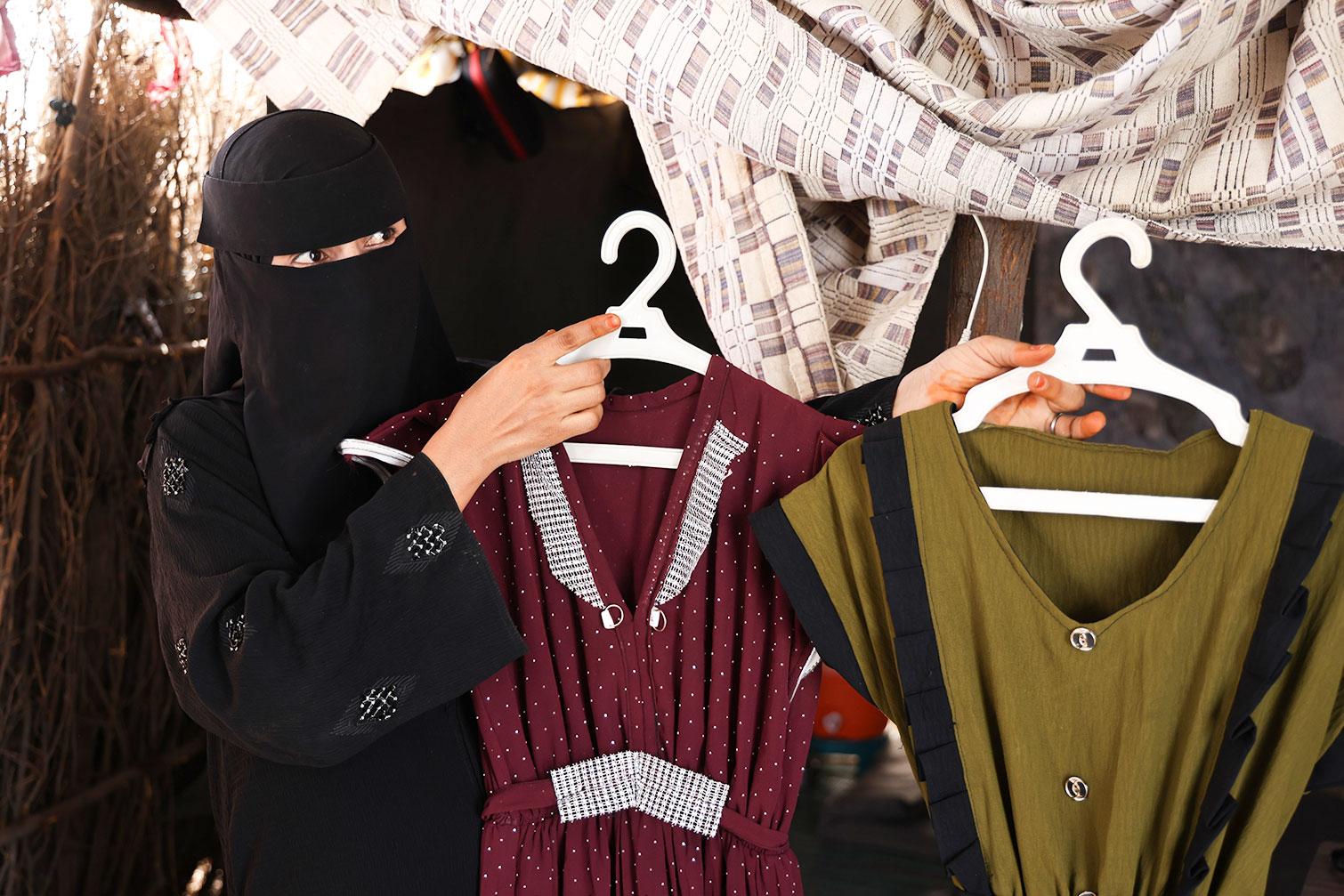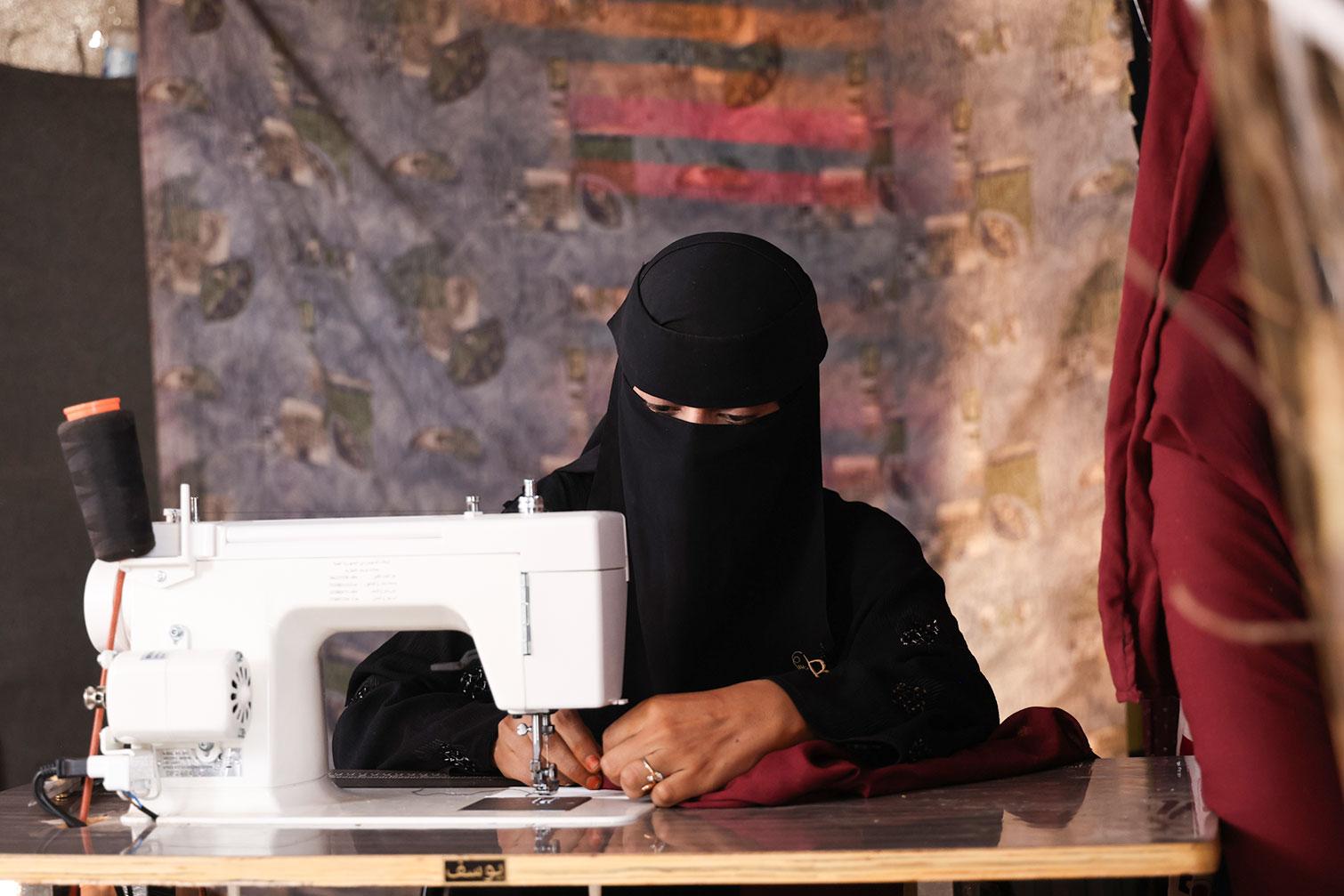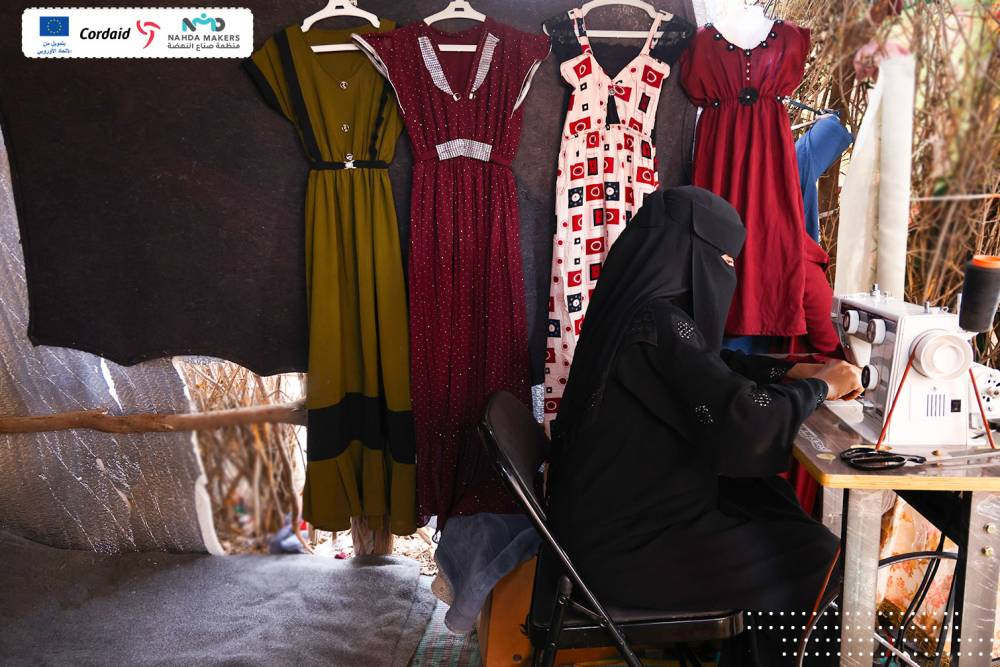In the rural Mawza District of Taiz governorate, Sawsan Mohammed lived a quiet, simple life with her husband and three children. She had completed her secondary education and supported her family in a household that relied entirely on her husband’s income.
But life changed abruptly when her husband suffered a serious spinal injury during the war, leaving him unable to work. Their home was later destroyed in a fire, along with most of their belongings, forcing the family into a displacement tent. ‘Suddenly, everything I knew was gone,’ Sawsan recalls. ‘We had nothing, and I had to find a way to survive.’
Dependent at first on humanitarian aid and the generosity of neighbours, Sawsan tried to support her family by selling ready-made clothes inside the camp. ‘However, fluctuating prices and unpaid customer debts quickly made it impossible to continue. The challenges felt endless,’ she says.
Her situation began to change when she learned about a vocational training programme run by Nahda Makers Organisation (#NMO) in partnership with #Cordaid, funded by the #European_Union. Sawsan immediately applied for the sewing course, an area she had always loved. Over several weeks, she learned basic and advanced tailoring skills, and at the end of the programme received a full vocational kit with all the tools she needed to start her own small business. It was a turning point. ‘I started sewing clothes and selling them. Little by little I became able to provide the basic needs and secure daily food for my family. This increased my self-confidence and sense of security,’ Sawsan explains. What began as a survival strategy has since become a source of pride and independence.
Today, Sawsan runs a small tailoring business inside the camp, sewing clothes for residents and fulfilling women’s orders. Her income now covers her family’s daily needs, and she no longer has to wait for aid.
Her work has gained recognition within the camp, and demand continues to grow. Sawsan is not only self-reliant but also a source of stability and inspiration for her family and neighbours. ‘I feel I have a place in this world,’ she says. ‘I can provide for my children and live with dignity.’
Sawsan is one of 450 participants in the EU-funded project helping households in Taiz move from dependency towards self-reliance. For her, the training has been more than skill-building – it has been a lifeline, transforming survival into opportunity.








